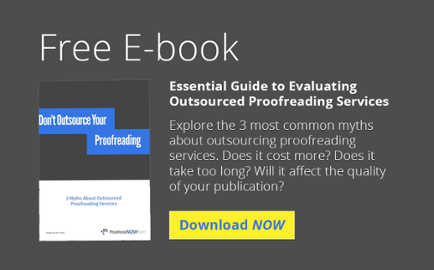5 Tips to Get and Keep Your Readers’ Attention
I have less than 8.25 seconds to convince you to keep reading. Less than 8.25 seconds before you click away. Less than 8.25 seconds before you…FOR THE LOVE OF PETE, COME BACK!
When it comes to our collective attention span, we’ve been beaten out by goldfish.
For all the writers out there, you feel my pain. In the age of endless distraction, writing about a boring topic seems worse than pointless. It’s like having someone hand you a coffin and saying, “Lie down in this and be lively.”
We get it. We’re a proofreading company, for gosh sake. Every time we talk about our work at a dinner party, we’re never invited back.
We know the stumbling blocks (or is it “crocks”), the most effective ways to make your readers roll their eyes, groan, and glaze over. But because we read and read and read, we also know the springboards—the approaches and tricks and strategies that make a huge difference in getting and keeping the attention of your goldfish…ahem…audience.
So if you’ve got a boring e-mail or blah case study or yawn-worthy white paper or presentation to write, check out these five tips for hooking your audience and serving their interest up for dinner:
- Use Story. When we read books with a mixture of information and stories (the self-help genre is a stellar example), we all skip to the stories. It’s nice to find out what “anxious attachment style” is, but what we really want to know is whether Pete finally told his father about his secret marriage and how much yelling there was. It’s great to figure out that “compounded interest” has nothing to do with a really big crush, but we really want to hear about the woman who paid down $80,000 worth of debt in four years and bought three houses with her compounded investment interest. We’re made for story, we resonate with story, we want story. Don’t just tell, show…with story.
- Find the Nerds. “Nerd” is the new sexy, so don’t read that as a pejorative. Find the people who have lived the information, people who love the topic, people who’ve made a ton of money off their expertise in that field. Find the people who exude passion for what others would consider “boring.” There’s nothing cuter, more entertaining, or more intriguing than someone waxing poetic on their passion project. Their excitement will not only wear off on you, but it will also feed into your writing. Their insights will lend clarity and accessibility. Who better to inform a layman’s explanation than the person who wrote the book or did the longitudinal study or read all the things?
- Be Specific. I didn’t write “I have a small amount of time” or “I have less than a minute” or “I have less than 8 seconds” on purpose. I wrote “I have less than 8.25 seconds.” Specifics are more believable and interesting. If 82.5% of Fortune 500 companies are seeing upwards of $27,000 a year in lost productivity per employee due to Candy Crush, don’t replace that with the lackluster “Lost productivity is costing big companies a lot of moolah.” Don’t tell your readers that punctuation matters so much that legal battles hinge on it. Tell them that a single lawsuit rested on the absence of a serial comma, costing a Maine dairy company $5 million in payout to its drivers. If generalities are a nail in the boring coffin, specifics are the party line to juicy tea (the kind you want to spill). And if you are listing statistics, be sure to cite your sources.
- Watch Your Language. First, don’t use clickbait. Writing is a brief but important relationship between author and reader. You may get initial clicks with shady tactics, but nobody likes being misled. Let your writing stand on its own for its simplicity, friendliness, and unique voice. Don’t use language that’s overly technical if your audience won’t understand it. Avoid constant slang if you need to establish yourself as an authority on something technical. What most people want when they’re looking for information is convenience and camaraderie (and funny memes). Life is hard enough; don’t make the language you use a deterrent to connection.
- Pick One Person. It’s intimidating and discouraging to write about a topic that sounds bland on the surface. But how would you feel if someone bought you a cup of coffee and your favorite pastry just so you would tell them what you know? Imagine they sat you down and stared across the table, waiting for you to speak, almost wriggling in their seat from excitement. A man could ride into the coffee shop on a moose while playing a kazoo, and they wouldn’t notice. Write to that one person.
Have any writing tips of your own for making boring topics more interesting? We’d love to hear them. Submit a comment below.
If you’re stuck in the purgatory known as “writer’s block,” check out 5 Tips to Beat Writer’s Block to get moving again.




